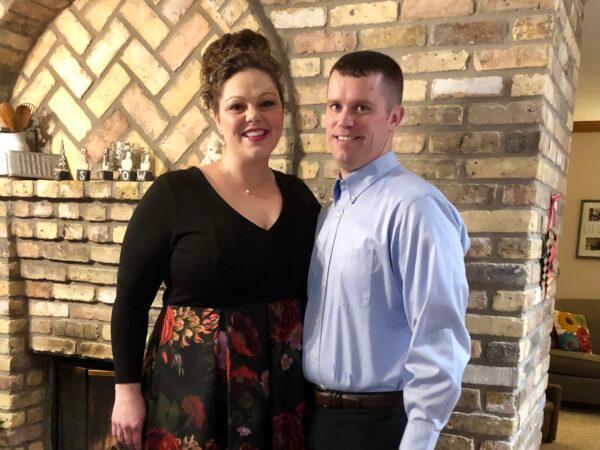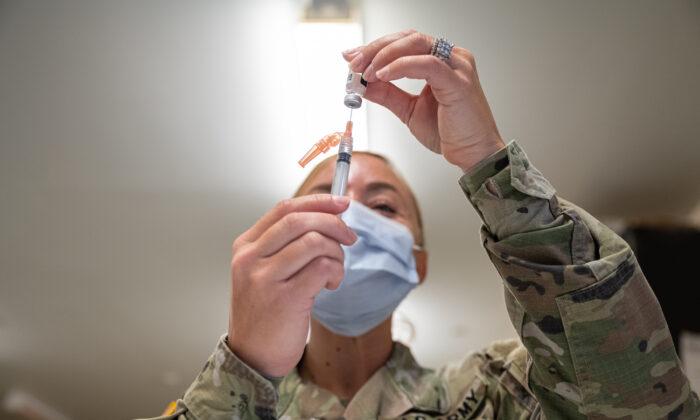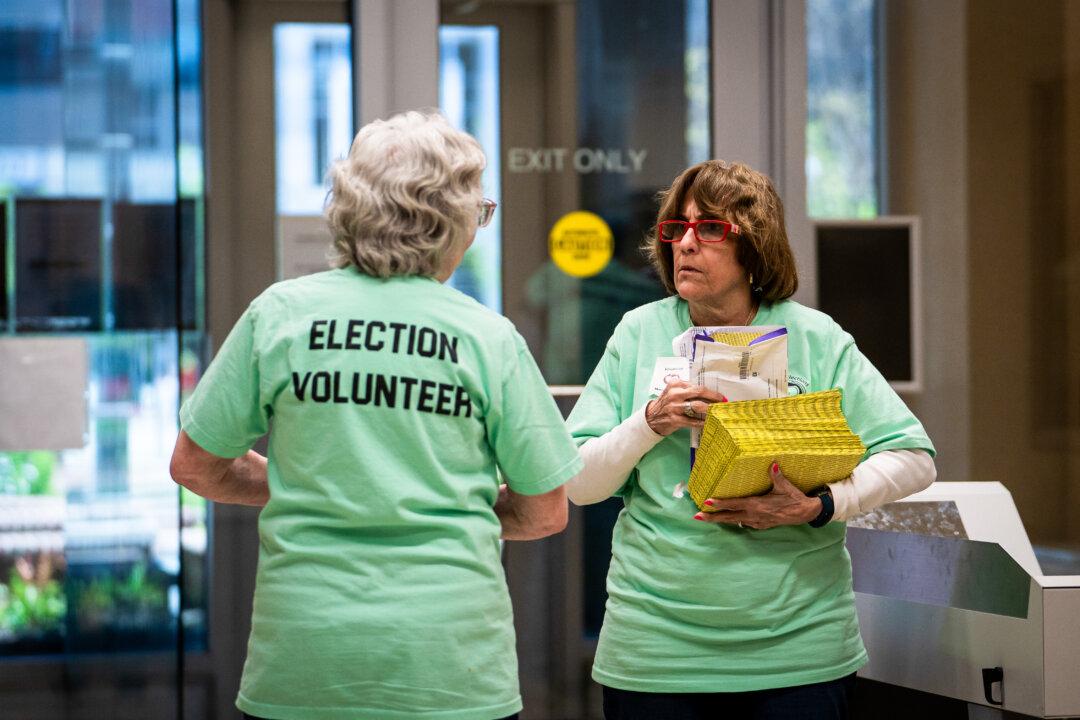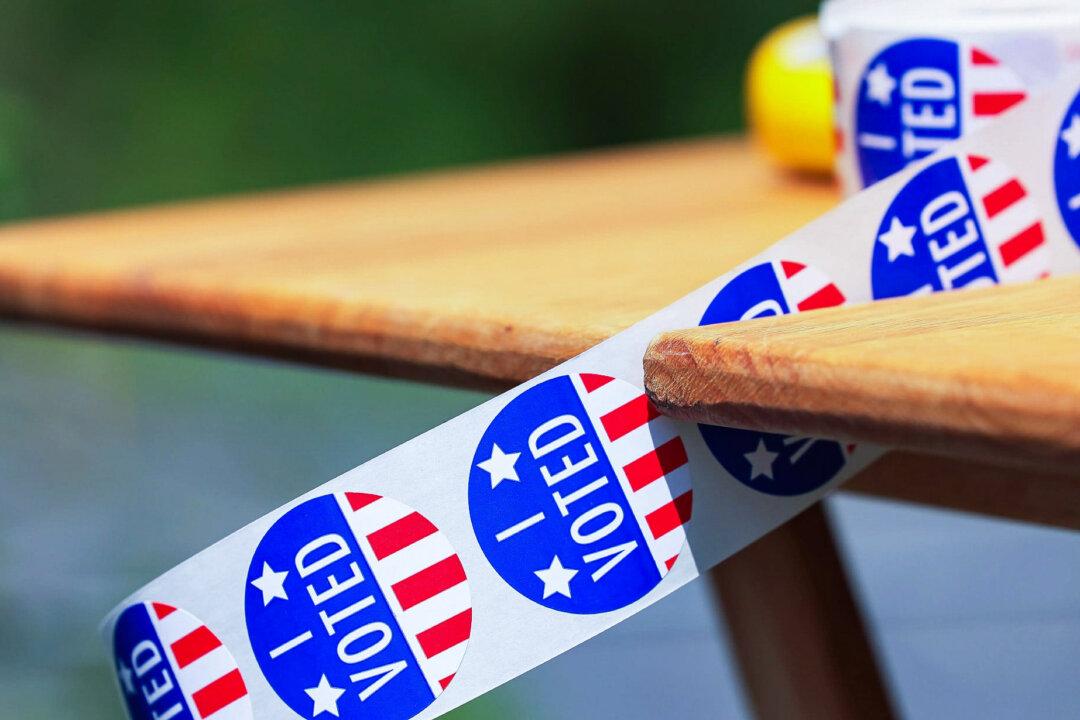The National Defense Authorization Act (NDAA), which awaits President Joe Biden’s signature, ends the requirement for military members to be vaccinated for COVID-19.
But it doesn’t say what happens to the people who have refused the COVID shot and were either kicked out of the military or who are in the middle of the separation process.
Will they be offered their jobs back? Will their earned benefits be reinstated? Will they be deployable? And will they be made whole from the individual damages many incurred?
The Epoch Times requested comment from the Pentagon, but officials are not talking.
Pentagon Press Secretary Brigadier General Pat Ryder spoke to the press on Dec. 20 and was asked about the plan for military members who declined the shot.
“When and if we have something new to announce, we certainly will. Okay?” Ryder said.
Those who have been separated from the military say they still feel wounded by how they were treated, and they have some suggestions for how the military should deal with them.
Left in Debt
Matthew Powers served 11 years in the Coast Guard. In that time, he conducted over 210 search and rescue cases resulting in over 221 lives assisted, 67 lives saved, and substantial property saved while operating out of the Coast Guard Juneau Command Center in Alaska.He also served on U.S. Coast Guard Cutter Munro, where he supervised a team that took on law enforcement tasks, including the seizure of over 2.5 tons of cocaine and the detention of at least eight narco-traffickers.
At the end of this tour, the father of two reenlisted, went back to Juneau, and intended to remain in the Coast Guard until retirement.
But after a religious request to skip the COVID shot, Powers was discharged on Nov. 14, 2022. On Nov. 12, he received an alarming letter. The Coast Guard intended to recoup a $24,000 bonus that he earned in 2020.
“They made a mistake on the Statement of Indebtedness by claiming that I received the bonus in 2021. This is inaccurate, and I have brought that up through my prior chain of command. I am still awaiting a response,” Powers told The Epoch Times. Because of this, the Coast Guard kept his final paycheck and sent him a bill for the bonus, minus his final pay. They say he still owes well over $10,000.
“I currently work at a local maritime organization. I started working there part-time while I was still in the Coast Guard to ensure that I didn’t find myself unemployed,” Powers said.
“I don’t plan on moving, but with the loss of my last paycheck and the debt that the Coast Guard is saying I owe, it is unclear if we will be able to retain our home in Alaska. It is my desire to remain in Alaska, and I am attempting to do everything in my power to ensure stability for my children.”
Powers says those discharged over the shot have experienced a variety of hardships, and there is no one answer to how the military could make them whole.

“Some may desire reinstatement,” Powers said. “Many people have now committed to life as a civilian. Many separated members have been forced to find new employment, move families, sell houses, and enroll children in new schools. Because of these factors, reinstatement could be more burdensome in certain situations.”
Ideally, the military would take the time to look at individual circumstances, he said, but such a process should not place additional burdens on separated members.
“We have been under enough burden, stress, and uncertainty throughout the Religious Accommodation Request process.”
Fighting for Morals
Every country has moral and ethical principles that contribute to the country’s identity, Powers said.“When a country no longer can define what is morally just and unjust, identity is lost, and patriotism follows. If someone claims to be patriotic but cannot define what they are patriotic for, patriotism becomes null and void. What we have seen throughout this process is a group of individuals with a sincerely held belief, who patriotically chose to follow their beliefs no matter the cost. It is the patriotic duty of military members to comply with orders that are lawful and just. In the same manner, service members should evaluate orders to ensure that all orders given are lawful.”
These are the kind of people the military needs, he said.
Ended Military Career Early
Logan Hommel, 31, is back at home in Missoula County, Montana, doing the same work he did in the Navy as an (AZ2) Aviation Maintenance Administrationman, handling aircraft documentation.He served almost 13 years in Washington, D.C., Florida, and Texas, but then he requested an exemption from the COVID shot in three ways; religious, legal, and medical (he already had recovered from COVID). There were some denials. He appealed and awaited an answer.
But Hommel’s service obligation ended in October 2022.
“They kept trying to get me to reenlist,” Hommel told The Epoch Times. “How can I, in good faith, sign on a dotted line for another four years if you guys can’t even give me an answer on whether or not you’re going to approve or deny? Because if I reenlisted, signed a contract for four years, and you denied my stuff, you’re going to kick me out, and I would get a less than favorable discharge.”
He was also concerned that if he got a bonus to reenlist, he would have to pay it back if his exemption was not approved.
“I kept bugging them to see if I could get an answer on my religious exemption and no word,” Hommel said. “And I wasn’t the only person that they were kind of doing that to. It was basically just, ‘Hey, this guy has got X amount of months left. If we just don’t give him an answer, we can just let him go, and we don’t have to face any ramifications of denying his rights.’”
Hommel believes most people who were forced to leave would not return to the military.
“They don’t want back in. They don’t want to serve under a regime that does not care about them and doesn’t care about law,” Hommel said.
Would Not Go Back

Adam Cassidy, 36, is a squadron commander with the Nebraska National Guard in Lincoln, Neb., and the father of three. He gave his resignation on Nov. 21 and is serving his final 60 days, which end in February. The demise of the COVID shot mandate came soon after his resignation, but his mind is made up.
“It’s less about the vaccine now for me and more about how we were treated,” Cassidy told The Epoch Times.
“Even if I were to stay in—even if they were to come back and said say ‘Just kidding. You don’t have to have a vaccine. You'll never have to have it. We’re never going to talk about this again’—it doesn’t erase how people were treated. None of that goes away. I can’t, in good faith, work with a few of the people that did that.”
Several people told The Epoch Times that once they refused the shot, the workplace became hostile.
An intelligence specialist who served at the Naval Air Station in Lemoore, Calif., said he was kept out of important intel meetings that prevented him from doing his job, and he was not informed of a promotion that came with a wage increase.
Others said they were not allowed to deploy, even to countries where there is no COVID shot mandate, limiting their ability to do their job and earn promotions.
Cassidy would have soon been eligible for retirement benefits after 20 years, and he wanted to continue serving after that. But he will not get retirement benefits now.
“I’m a legacy Air Force guy. My granddad was in for nearly 40 years. My father was in. All of my siblings serve in some fashion or form. And after 17 and a half years—two and a half years short of retirement—it’s no small, personal sacrifice to me and my family to walk away,” Cassidy said. “But it’s not worth two and a half years of more time away from my family and more time with an organization that I don’t share the value set of.”
Cassidy is not sure there is a path for the military to make people whole. The vaccination mandate caused division in the ranks that will be hard to overcome.
The Air Force trusted Cassidy to lead 260 airmen in Afghanistan in 2019, but now he is out because of this one thing, he says. The Department of Defense made a video featuring his work there.
“Because I have some concerns about putting this injection into my body, I’m not trusted—I’m not able to fundamentally do my job in the way that they want. The difference between those two things and how this has progressed over the last couple of years is disappointing.”






Friends Read Free